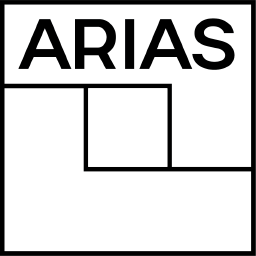

Spillway, 2023, publication by Elki Boerdam
Every day, we consume hundreds of images. We use them, ignore them, absorb, object and devour them. They are the digital material that shapes our online worlds, seducing us into the pull of our devices.
Images hold the power to activate, surprise, motivate, rebel, and confuse. They have their own agency. Yet, the fragility of digital information means these images, like so much of what we encounter online, are vulnerable to being lost, forgotten, or distorted. Archiving these overlooked and forgotten corners of the internet is a way of preserving not only the beautiful but also the strange, uncanny, and whimsical—the weird and the "lol" moments that give texture to our digital lives.
In this workshop, guided by artist and researcher Elki Boerdam, we speculated on what it’s like to be an image. We explored the power images hold to shape the ways we see the world and the kinds of stories that can emerge when they encounter one another.
By creating personal imaginaries, we reflected on how preserving the strange, uncanny, unwanted, irrelevant, “low-quality,” or even ugly images allows us to embrace and remember the parts of ourselves that share those qualities. In an increasingly curated digital world, this act of preservation becomes an act of resistance—standing against the predictive nature of online life.








Elki Boerdam is a visual artist, researcher, writer and photo editor. She is captivated by the accumulation, circulation and consumption of images in the digital age. In her practice, she works with found images and uses them as a medium through which she researches topics like the philosophy of photography, image culture, image phenomena and technology. Examples of work are image assemblages, video renderings, techno fiction stories and zines. She is also the co-initiator of the Input Party, a project on the personal image collections of artists, and the co-creator of the zine series SAD MEN. Next to this, she also gives workshops and lectures and works as a photo editor for De Volkskrant.
Participants: Alessandra Tom, Alix Stria, Beatrice Cauda, Carlo De Gaetano, Dorin Budușan, Giene Steenman, Hanneke Rozemuller, Joanne van Halteren, Laura Sofie van der Reijden, Madison Jolliffe, Minhong Yu, Nicolás Conde, Pablo Núñez Oalma, Pascale Lef, Rosa Zangenberg, Sabine Niederer, Sara Pezzolesi, Sofia Fernández Blanco, Tânia Alexandra Cardoso, Yee Ting, Zachary Formwalt.








In the spring of 2024, the Slow AI project launched a series of material-based research workshops that took the form of Material Playgrounds, borrowing the term and building on the work of Socrates Professor Erik Rietveld. These workshops aim to collectively explore different ways of engaging with AI through material investigations that allow for playful exploration and experimentation.
Slow AI focuses on developing strategies to address colonial and extractive histories embedded in current AI systems by applying the concept of ‘slowness’ to a fast technology. It is a project initiated by artist and researcher Mariana Fernández Mora and a collaboration between the Visual Methodologies Collective (HvA) and the Sandberg Institute (GRA). In collaboration with the Artificial Worlds group at ARIAS Amsterdam and generously funded by the Centre of Expertise Creative Innovation, Slow AI aims to contribute to a more equitable and sustainable technological landscape.
For updates on the research and public events, subscribe to the ARIAS Artificial Worlds newsletter here.



